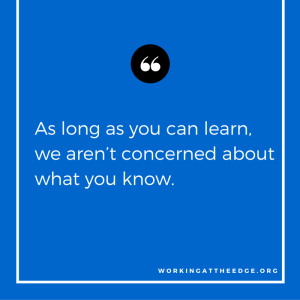 Day 2 of the #PennSV16 study tour was packed with lots of engaging conversations with people working in the ed tech industry. We started the day with a breakfast for representatives of edtech startups followed by presentations from, and visits to, Peekapak, Remind, Class Dojo and Nearpod. In processing the day, these themes emerged.
Day 2 of the #PennSV16 study tour was packed with lots of engaging conversations with people working in the ed tech industry. We started the day with a breakfast for representatives of edtech startups followed by presentations from, and visits to, Peekapak, Remind, Class Dojo and Nearpod. In processing the day, these themes emerged.
Is content king?
After providing some context related to my role as a superintendent, I asked everyone I could what knowledge and skills they find necessary to be most successful as an entrepreneur and what else they look for in new hires. Here is what I consistently heard (How are we supporting the development of these in our learners?):
- Content knowledge isn’t king. Soft skills are far more important as long as you are a learner. One person broke it down into three things:
- Hustle – You have to ask a lot of people, again and again, for funding.
- Collaboration – You can’t do this alone. Find a collaborator that has complimentary skills and start creating ideas.
- Persistence – You’re going to fail…a lot. “It’s a slog…but it’s worth it.”
- One person shared, “As long as you can learn, we aren’t concerned about what you know.” Specific skills mentioned:
- Communication – know your audience; you’ll need to understand and empathize with them
- Data – you’ll need to identify themes in data and uncover real problems
- Problem finding and problem solving
- Being able to learn – learning by doing/hands on
- Collaboration – working within and across teams
- Grit – the ability to push through failures
Is technology neutral?
One of the tech companies we visited is exploring the possibilities of virtual reality. The conversation got me thinking about the possibilities for using technology in general in the classroom – both good and not-so-good. The “stuff” itself, in this case a VR viewfinder, can be used to reinforce an outdated model of learning or it can be used to propel a more progressive vision of learning that engages students in active inquiry. This is why we need competent teachers who are skilled at evaluating particular uses of technology and self-aware of their beliefs about learning. The tech itself is neutral. How we use it determines it’s real value.
When gauging the value of a tech tool, such as VR, do we need to ask how its use reflects our vision for learning? In this case, how can VR support what we know and believe about learning? Connecting these questions to the first part of this blog, does a particular use of technology reinforce the importance of content or does it support the learner in further developing a skill? What is the best pedagogy for a tech device?
We hear about the importance of “21st century skills” and debate the effectiveness of technology. Today provided the opportunity to engage in conversation with those doing real work in the field – practicing entrepreneurs – and my colleagues on this trip. The takeaways were remarkably clear for me: Be a learner. Soft skills matter. Powerful technology use supports what we know about learning.
What is the relationship between content and skills in the learning process? How do you decide the value of a particular kind of technology? How are we providing opportunities for learners to grow both content and skills?
Connect with #PennSV16 on Twitter and on Voxer. Connect with Randy on Twitter and on the TLTalkRadio podcast!
Get new content delivered to your inbox and the ebook 3 Key Principles of Digital Transformation. The ebook contains valuable information from my experience leading a digital transformation and working with a variety of stakeholders over the past decade.
- A silver lining - January 22, 2022
- Is our use of tech working against us? 🤔 - September 8, 2021
- What’s NOT going to change in the next 10 years? 🤔 - September 7, 2021